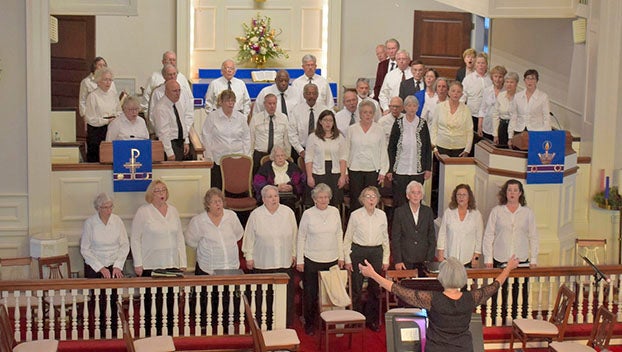Watch your Language — Correct or incorrect use?
Published 7:47 am Saturday, January 28, 2023
|
Getting your Trinity Audio player ready...
|
Today’s language column is devoted to a look at the many ways in which everyday language use can be both curious (in the sense of unexpected and odd), fascinating, and thought provoking. A new word or combination of words may be original and innovative, even humorous, but many examples lead us to the question of correctness, a designation that is not always easy to determine. Take a look at the following sentences, each of which is an example of something that was actually written or said. I have underlined the use in question and provided context when necessary. Is the use correct or not? Answers and explanations follow at the end.
1. From a memoir: In the first place it was not unusual, in those long Victorian families, for one child to live with the grandparents; even more important, I loved the idea of being the youngest member of a family of grown-ups, rather than the eldest daughter of a rumbustious brood whose intake was one per annum.
2. From an enthusiastic employer: I would give her a glaring recommendation.
3. From a student’s perspective: As a college student heralding from a suburban, middle-class family, I came to my classes with certain, long-held assumptions.
4. From an advising note for undergraduates: Beware of the 4-semester foreign language sequence.
5. From the Bible: 6 The LORD said to Cain, “Why are you angry, and why has your countenance fallen? 7 If you do well, will you not be accepted? And if you do not do well, sin is couching at the door; its desire is for you, but you must master it.”
6. From a political statement: We live in a world of unpresidented crises.
7. From an e-mail between fellow animal rescuers: I was sliding out the black tray in the bottom of the crate to clean it and the black kitten squeezed its emancipated body through the opening in the bottom of the cage and ran away.
8. From a conversation about a famous linguist: Once he started writing, he hit his stride and published an incredible number of articles. He was like Secretariat. He looped the field.
Here are the answers and explanations. Number 1 is correct. The Oxford Languages dictionary defines rumbustious as “boisterous or unruly.” It is more likely to be used in Great Britain; it’s also an old expression and as you can see from the piece cited, there are several archaic or older expressions in the text. The word is related to rambunctious, which means “uncontrollably exuberant, boisterous.”
Number 2 is incorrect. The speaker intends for the recommendation to be positive but has confused the words “glowing” and “glaring”. In fact, glaring tends to be used with more of a negative connotation in phrases such as “a glaring error” or “glaring look.”
Number 3 is incorrect. The student has confused the verb “hailing” as to “hail from” (to be from a particular place) with “heralding” which means to signal that something is important and or good; to celebrate something publicly by praising.
I hope that Number 4 is incorrect. It’s also funny (kind of) for professors of modern languages, because it unintentionally conveys an uneasiness on the part of the author about the completion of a four-semester foreign language requirement in the vein “Beware of the dog.” It should read: Be aware of the four-semester foreign language requirement although members of my group (my people) may endorse an even stronger wording such as “Be glad of”, “Feel intellectually strengthened by” or “Celebrate that you are at a college with . . .”
Number 5 is correct. It is not a typo, as I originally thought when I read this in the pew Bible at church. We are familiar with the noun “couch” (part of the living room furniture) but couch can also be used as a verb to mean “lie down” and this is the case in the Revised Standard Version (RSV) which can also be found online at Biblegateway.com. The Oxford Languages online dictionary gives the following example: “Two creatures couched side by side in the deep grass.” The Oxford English Dictionary reveals that this is an archaic use with textual examples ranging from 1375 to 1879. The OED notes that this use often refers to animals and tends to be used as a reflexive or in the passive voice. Whether it’s “couch” or “crouch”, the message in this text is worth paying attention to.
Number 6 is incorrect. This is a typo. The author of this statement has confused “unprecedented” (meaning without an expected repetition of something considered to be a guide or example) with a lexical creation that encodes the more familiar spelling “president” sandwiched within the prefix un- and the suffix -ed.
Number 7 is incorrect. This is a spelling error and probably due to a text editor in the person’s phone. The confusion here is between “emaciated” (starved, too thin) and “emancipated” meaning freed. The curious part is that the emaciated kitten ended up emancipating itself from the crate.
Number 8 is incorrect and to be forthright I am acknowledging that I produced this misuse. I should have said “he lapped the field” but I focused on the circular form of the track and used the verb “loop.” The Collins Dictionary and the Cambridge English Dictionary respectively define “to lap the field,” an expression from racing, as ‘to go past someone in a race who has been around the track one less time than the runner who is passing” or “to go past someone while they are still on the previous lap.”
Julia Palmer is an associate professor of modern languages at Hampden-Sydney College. Her email address is jpalmer@hsc.edu.





